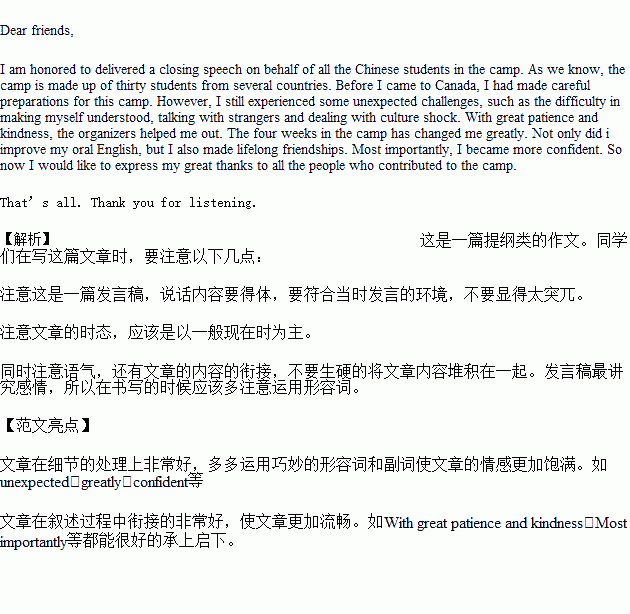题目内容
假设你是李华,日前参加了在加拿大举行的为期四周的国际中学生生存训练营活动, 并将作为中国学生代表在闭幕式上发言。请你用英语写一篇发言稿,要点包括:
1.遇到的挑战(语言、交往、文化冲击等);
2.你的收获;
3.感谢组织者。
注意:1. 词数100左右;
2. 可以适当增加细节,以使行文连贯;
3. 开头和结尾已给出,但不计入总次数。
Dear friends,
I am honored to deliver a closing speech on behalf of all the Chinese students in the camp.
__________________________________________________________________________________________________________________________________________________________________________________________________________________________________________________________________________________________________________________________________________________________________________________________________________________________________________________________________________________________________________________________________________________________________________________________________________________________________________________________________________________________________________________
That’s all. Thank you for listening.
 名校课堂系列答案
名校课堂系列答案
